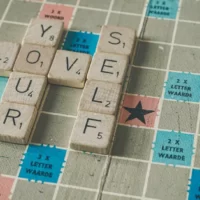Why is saying “I love you” terrifying? We address this query in this blog post along with the key justifications.
When was the first time you said to someone out loud, “I love you?” Who said it to you for the first time and when? It could be just as unforgettable as your first kiss. However, some of us find it extremely challenging to express this idea out loud. What are some of the causes of our hesitancy?
While being vulnerable is terrifying in and of itself, there are many additional factors that contribute to our fear of confessing our love for someone, even though they shouldn’t.
The Way We Were Raised
There are those who never heard an “I love you” from their parents. In actuality, a lot of kids grow up in environments where emotional communication is lacking. Their feelings are constantly suppressed and contained in these circumstances, and their emotions are not acknowledged.
This fact was brought to light by a study done at the University of North Carolina (USA). This research suggested that parents’ socio-emotional skills determine whether a child is more or less adept at recognizing and expressing their emotions.
Since we’ve been doing it since we were young and our parents have gotten us used to it, it will always be simpler for us to express how we feel.

Fear of Commitment
Some people put a lot of power into the three words, “I love you” and are not ready to promise something they are afraid to give. The more weight that is put on these words by the partner of someone who is “commitment-phobic,” the less likely it is you will hear them tripping out of the commitment-phobe’s mouth.
Though love might exist, it goes unspoken because of commitment-related fear. What makes people afraid of committing? No matter how much love a person may actually feel for their partner, when a choice is made, all other options are then eliminated, and this lack of options can be frightening and too limiting.
Fear of Appearing Needy
For some people, confessing their love is akin to recognizing their need for a partner. If they acknowledge that they are susceptible to another, it’s almost like giving up power.
Fear of Rejection
Of course, the fear of having our feelings not reciprocated is one of the biggest fears that prevent us from speaking our minds. Love is like a seesaw: It’s simple to start off with one person caring more for the other, but a balance of give-and-take is what gives the relationship momentum.
Fear of the Potential of Being Hurt
It’s almost like having an empty space in your heart when you’re in love with someone. The saying about “having a soft spot” for someone is wonderfully descriptive: We remove a layer of self-defense when we open up to someone, which makes it easier for us to get hurt.
Having your ego bruised by someone you have that “soft spot” for can be much more painful than when it’s someone less special to you.
People Who Don’t Want to Commit

We mentioned at the beginning that there are those who choose to say “I like you” instead of “I love you”. Those who want to avoid commitment frequently use this technique. They might even be in love, but they don’t want or aren’t ready for a committed partnership. In their choice of words and expressions, they choose dialectical juggling.
An “I like you” makes it clear that there’s attraction and that they enjoy your company. However, they avoid expressing something deeper to escape a more solid bond or awaken any hopes for the future in you.
You Believe You’re Responsible for the Other Person’s Happiness
That is not only arrogant and self-centered, but also destructive to any relationship. Healthy couples truly accept one another so that they can be life partners rather than trying to make each other happy or complete one another.
If you believe you’re responsible for the other person’s happiness, your fear of disappointing them, or of eventually breaking their heart will take over, and saying “I love you” will become extra terrifying.
The fear should vanish if you swap your sense of responsibility for their happiness for one of acceptance for who they are.
You Can’t Say What You Don’t Feel
Without stating the obvious, this article must come to an end. The fact that, despite their best efforts, no one can ever truly express what they do not feel. As a matter of fact, deciding not to say “I love you” is an act of maturity and responsibility. Because it’s improper to mislead anyone or create false expectations.
Additionally, if you notice that your partner has stopped using those three simple words and their emotional communication has diminished in intensity in the middle of a relationship, it is clear that their love for you is eroding.
Conclusion: Say I Love You
You may even start questioning the future of your relationship and where things are heading, but before you jump to conclusions, consider the reasons why your partner hasn’t said “I love you” yet.
Gratitude and expressing your appreciation to your partner can help them understand and feel that you would return their love.
















